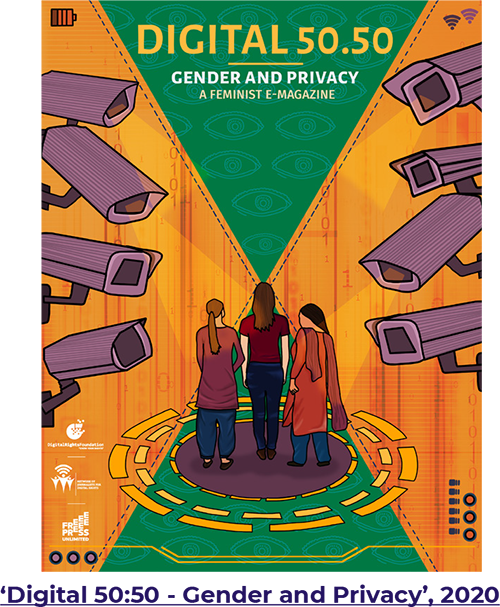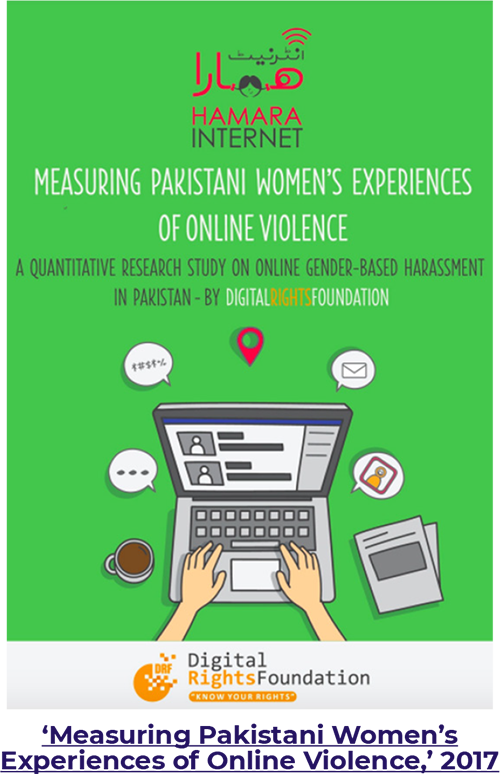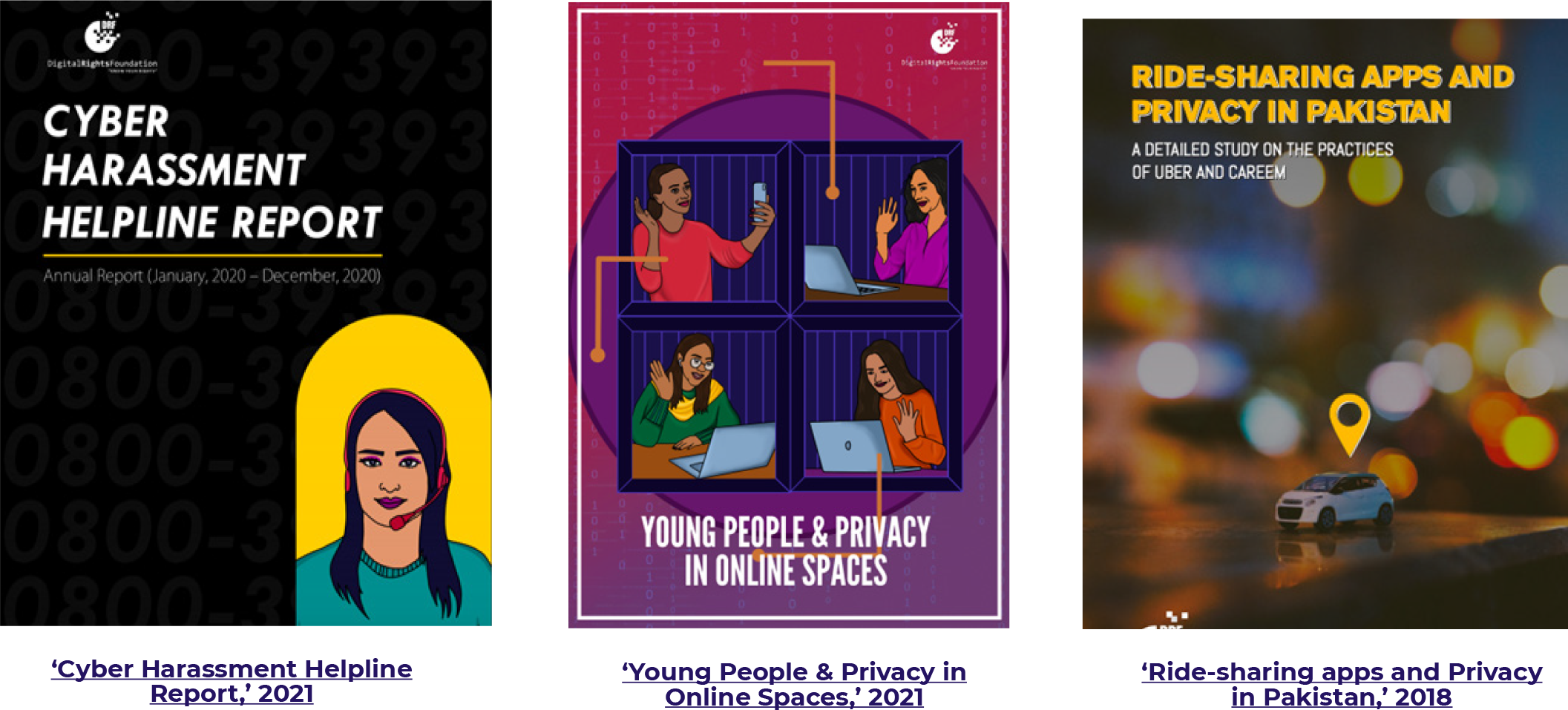

Digital Rights Foundation (DRF) is a non-profit working on the intersectionality of technologies and human rights for the last eight years in Pakistan, focusing specifically on groups and identities that are more vulnerable in online spaces and with reference to technology. Through the work that we do, we seek to dismantle the assumption that the introduction of technology leads to progress and more neutrality in mediating human relations. Our work, through research, advocacy and engagement with communities, has told a different story about technology that is marked by social structures, inequalities and, depending on your identity, violence. Technologies cannot, and should not, be separated from the social, economic and legal structures that shape our societies.
 DRF’s work has primarily focused on issues of gender based violence mediated through technologies such as mobile phones and the platforms on the internet. As social media platforms have come to dominate the internet, they have become sites of expression for a lot of women and gender minorities, providing spaces to create communities and express themselves. However, these spaces also give way to online violence, which ranges from abusive comments to serious cases of blackmailing and doxing of personal information without one’s consent. We are no strangers to patriarchal violence; however, online violence has exponentially risen in the last decade and is a common experience for women who own mobile phones and access the internet. Our first comprehensive research on the subject, conducted in seventeen universities across the country in 2016, confirmed many of these observations. A staggering 70% of the young women surveyed stated that they were afraid of posting pictures online for fear of misuse. This corresponded with very few women having knowledge of the law on online harassment or awareness of policies of social media companies.
DRF’s work has primarily focused on issues of gender based violence mediated through technologies such as mobile phones and the platforms on the internet. As social media platforms have come to dominate the internet, they have become sites of expression for a lot of women and gender minorities, providing spaces to create communities and express themselves. However, these spaces also give way to online violence, which ranges from abusive comments to serious cases of blackmailing and doxing of personal information without one’s consent. We are no strangers to patriarchal violence; however, online violence has exponentially risen in the last decade and is a common experience for women who own mobile phones and access the internet. Our first comprehensive research on the subject, conducted in seventeen universities across the country in 2016, confirmed many of these observations. A staggering 70% of the young women surveyed stated that they were afraid of posting pictures online for fear of misuse. This corresponded with very few women having knowledge of the law on online harassment or awareness of policies of social media companies.
Over the years we also realized there was a severe lack of evidence when it comes to online gender based violence, particularly quantitative data. Through our cyber harassment helpline, we have sought to fill that gap by publishing annual helpline reports since the inception of the helpline outlining the number of cases, the nature of harassment experienced, the geographical spread and the type of recourse taken. This data has served as a basis for further research on issues such as mental health as well as advocacy efforts such as lobbying the government to increase the resources dedicated to gender-based violence at cyber crime wings of the Federal Investigation Agency (FIA).

Over the years we’ve looked at the type of harassment faced by women journalists, activists and politicians in online spaces and found similar patterns, particularly for those with a considerable public profile. Given that online violence occurs at intersectionalities of gender identity, class, religion, ethnicity, abilities and age, we’ve recently looked more closely at the experience of religious minorities in online spaces and young people’s experience of privacy.
Another major focus of our research has been platform responsibility with reference to issues of violence and privacy. Building on the Ranking Digital Rights framework, DRF published a study analyzing the privacy policies of local telecommunications companies in Pakistan and found them woefully inadequate and, at times, completely lacking. We followed it up with an analysis of privacy policies for ride hailing applications and found that these services were lacking in their “protection and ethical use of personal data, in their provision of safe workplaces for drivers and safe services for users, especially women.”
Based on our research, we regularly submitted policy recommendations to various governmental and international bodies on subjects such as online violence, content regulation, surveillance, right to assembly, data protection, freedom of expression and misinformation. As technologies become more embedded in our lives, especially in wake of the COVID-19 pandemic in particular, we will continue to look at emerging issues and situate technologies within the local context while and as a continuation of the ‘offline world’. Lastly, during the pandemic, we worked primarily with women journalists, writers and artists to create the Digital 50:50 e-zine that creates a feminist space to write about issues as diverse as mental health, privacy, feminist movements and tech by combining the written word, videos and digital art.
Shmyla Khan is the Director for Research and Policy at Digital Rights Foundation.
